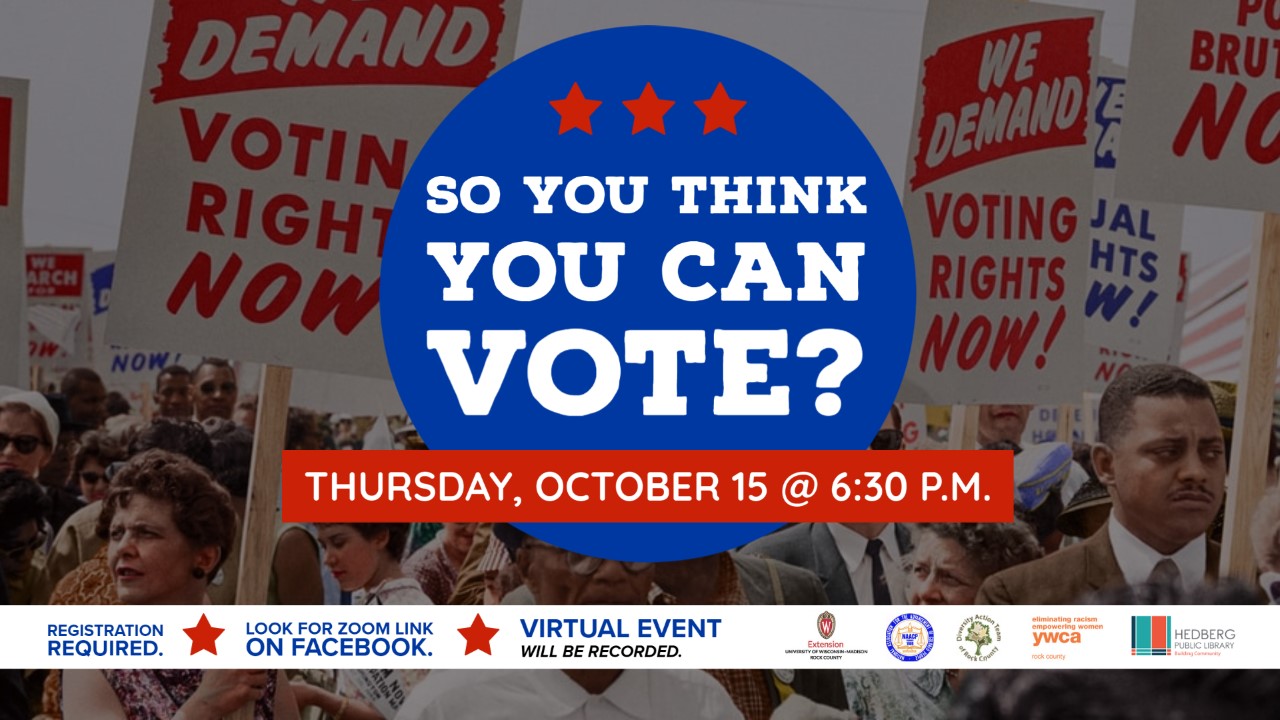WATCH HERE

REGISTER HERE:
https://us02web.zoom.us/meeting/register/tZUlfuGgqDgqE9Xu-yN_3ajrQFsOuElTcMNN
The vast majority of Americans view voting as a critical right that should be easily accessible to all eligible citizens. Yet the bulk of historical and contemporary evidence suggests that easy and widespread access to voting is illusory at best. In this program, Kate Johnston (Beloit College, History) and Phil Chen (Beloit College, Political Science) discuss the multitude of ways in which the right to vote has been and continues to be restricted in the United States. From early American laws restricting the right to vote to white landowning men to contemporary policies like voter identification and felon disenfranchisement, the right to vote in the United States has been consistently tied to race, class, ethnicity, and gender. The program will end with the sharing of important voting information by Lisa Johnson of the League of Women Voters.
Phil Chen is an assistant professor of political science at Beloit College. His research and teaching interests focus on American politics, with a specialization in political psychology. His research examines the ways identity affects public opinion about candidates and politics, as well as political behaviors such as voting and participation. Recent work looks at the role of benevolent sexism in driving COVID-19 public health compliance, the ways that race and gender interact to affect campaign donations to candidates, and how the gender of a Supreme Court nominee affects the ways people evaluate the nominee.
Kate Johnston is an assistant professor of history at Beloit College. She researches and teaches about race, slavery, and the environment in the Caribbean and the Atlantic world, with a focus on the eighteenth century. She also teaches courses on Native North America, Legacies of Slavery, and Health and Disease in Early America.
